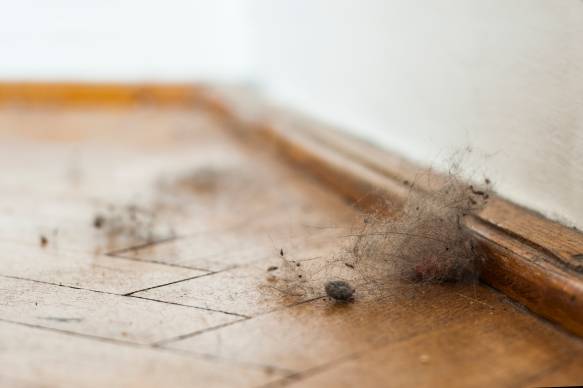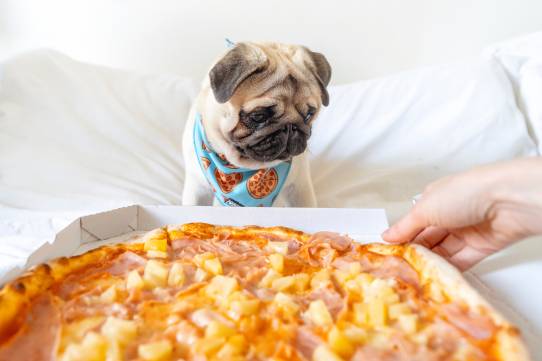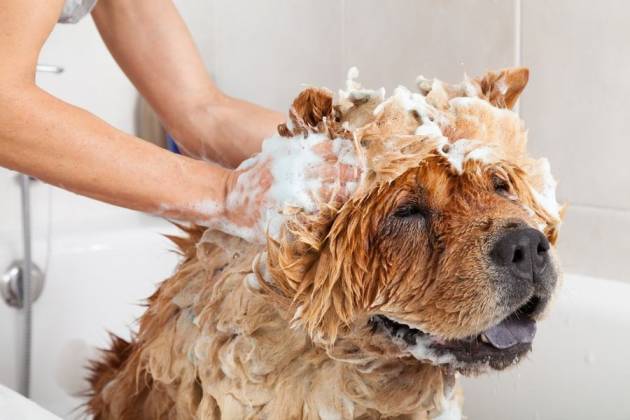Connect with a verified veterinarian in minutes. Licensed vets are available 24/7 to answer your questions. No need to worry about your furry family member.
Some dogs seem to eat most anything and everything! They may eat a bit of food off the kitchen floor. That’s a regular occurrence. But what about a dog eating dust bunnies?
Has your dog eaten a dust bunny? Are you worried the dust bunny could make your dog sick? If so, you’ve come to the right place. We understand it can be concerning when your dog eats something like this.
We’ve put together some information about dust bunnies and whether they can make a dog sick. Let’s get started!
What are Dust Bunnies?
Dust bunnies are bunches of fluff that contain dust particles, dust mites, shed skin cells, fibers, soil, and bacteria. These bits of dust and fluff come together when debris moves around your home. Static electricity and tangled bits of hair form together; the static electricity can also trap other particles and debris, which is also trapped in the tangled hair. Before you know it, a dust bunny has formed.
Studies have shown that one gram of dust bunny fluff may contain thousands of dust mites and their poop. That’s pretty disgusting! No wonder dust bunnies can cause allergies and other problems. Yuck!
Dust bunnies tend to gather under and behind furniture, appliances, on the floor, in corners, and more. The best way to get rid of dust bunnies is through regular cleaning. Cleaning these bits of fluff and stuff is best done with a vacuum cleaner fitted with a HEPA filter.
Now that we’ve learned how dust bunnies form and what they include, is it possible dust bunnies could make a dog sick?
Dust Bunnies & Dogs
We have to start by saying there’s no nutritional value in dust bunnies. So, if a dog is regularly eating these, he may be suffering from a condition called pica.
Pica is a psychological, compulsive behavioral problem found in dogs, humans, and other animals. The condition causes a dog (or human) to eat non-food items. The non-food items can include metal, plastic, dirt, garbage, paper, feces, and even dust bunnies. Pica may drive a dog to eat just about anything.
Why pica is usually a psychological issue, it can also be caused by poor nutrition and some medical conditions. So, if your dog is eating dust bunnies, it’s a good idea to call the vet. Make an appointment with the vet to determine if your fur baby is suffering from poor nutrition or another health issue.
There are other reasons a dog may eat dust, too. A dog may eat dust bunnies because they taste good to him, the dog is curious about the dust bunny, your canine companion may be seeking attention, and more.
The good news is that eating dust bunnies doesn’t seem to make dogs sick. But we still advise calling the vet to ensure your fur baby isn’t suffering from an underlying health issue.
Connect with a verified veterinarian in minutes. Licensed vets are available 24/7 to answer your questions. No need to worry about your furry family member.

Julie
Julie is a graduate of the University of North Carolina, Wilmington, where she studied Animal science. Though contrary to the opinion of her parents she was meant to study pharmacy, but she was in love with animals especially cats. Julie currently works in an animal research institute (NGO) in California and loves spending quality time with her little cat. She has the passion for making research about animals, how they survive, their way of life among others and publishes it. Julie is also happily married with two kids.
Review symptoms, medications & behavior to keep your pets healthy with a Vet Online in just minutes.
Ask a Vet Live Now





